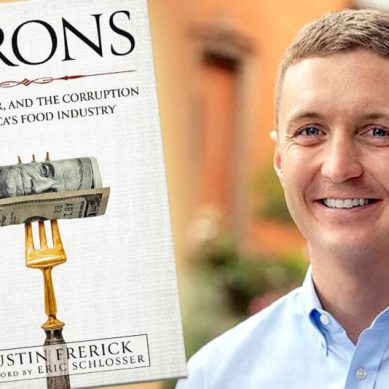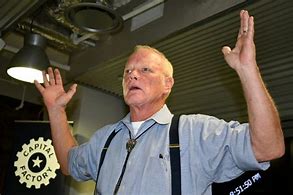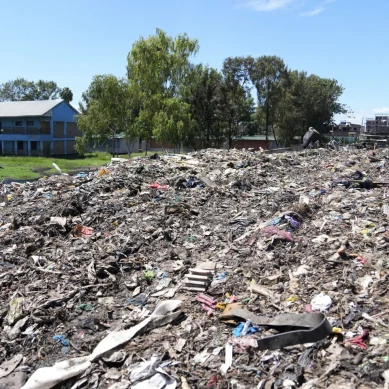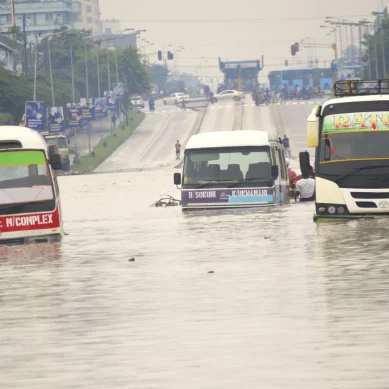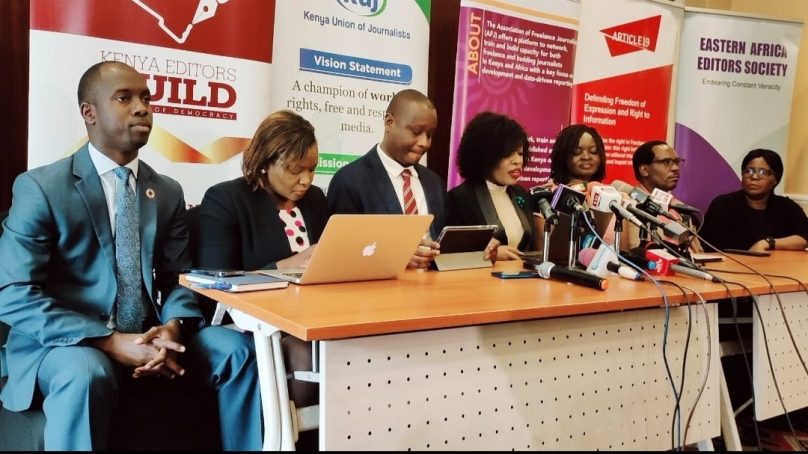
The Kenya government is bolstering its scorched-earth campaign to gag media following detailed and unflattering reporting on how state functionaries liberally help themselves to public funds at a time the East African nation’s economy is bleeding and the cost of living galloping.
Two days after Trade and Industry Cabinet Secretary Moses Kuria went hammer and tongs at the Daily Nation – the largest newspaper in East and Central Africa by circulation and sales – President William Ruto declined to rein in state functionaries who in the past 10 months since ascending to power have taken turns to lambast the media for exposing financial fiddling in government.
Even before he became president, Ruto had been profiled for serious economic crimes that ranged from land grabbing and diversion of public funds meant for water dams and other infrastructure development. In the run up to the 2022 presidential election, his former friend-turned-foe, President Uhuru Kenyatta openly referred to him as a thief.
That is how he is perceived by even close friends, hence the moniker Zakayo – derived from the ruthless and conniving tax collector Zacchaeus in the Bible who was loathed by taxpayers.
Consistent media reports on financial irregularities he was previously been implicated in when he served as cabinet minister in previous governments and deputy president in the last regime informs the testy relations he has with journalists. There is no love lost between him and the media.
In 2012 when Ruto and President Kenyatta were indicted by the International Criminal Court (ICC) for crimes against humanity during the 2007 General Election, there were fears that he had retained hitmen who hunted down and eliminated journalists he believed had incriminating evidence the international court would have used to nail them. These claims, however, have never been proved although a number of journalists disappeared without trace during those heady days.
The appetite for illicit money in the Ruto administration has hit astronomical levels and become a source of public interest at home and abroad. Unverified reports suggest investors review plans to invest their money in Kenya, considered the economic and humanitarian launchpad of the region.
Tell Media could independently verify reports by Kenya Association of Manufacturers (KAM) and Kenya Private Sector Association (KEPSA) that investors and potential investors may be relocating to neighbouring countries on account of skyrocketing cost of doing business and runaway graft in government.
As the president defended his ministers on Wednesday June 21, the Senate was censuring unrepentant Kuria for controversial award of tenders to businesspeople from his Kikuyu and to offshore companies that had not even applied for the tender to import 125,000 metric tonnes of duty-free cooking oil valued at Ksh8.12 billion ($58 million). The edible oils are minuscule fraction of over 580,000 tonnes of staples the government has lined up for importation duty-free despite having – reportedly – run out of foreign currency reserves.
This is happening against the backdrop of KAM saying its members have the capacity to meet demand for the edible oils in Kenya and the rest of East African Community – a market of roughly 300 million people. The price of locally processed edible oils is significantly less than have of the imported goods, according to KAM.
Ruto described Kuria’s vulgarity as “his freedom of expression” to hold to account journalists for investigating and exposing scandals in government. The bringing to light of the theft Ksh3.7 billion ($26.4 million) meant for anti-malaria nets from the Global Fund rubbed the government the wrong.
Global Fund cancelled the donation citing impropriety, which put at risk the lives of millions Kenyan children below five years. The media has also held the government to account over “subsidised” fertiliser that was allegedly stolen by government functionaries, repackaged and re-sold it at exorbitant prices. The theft is projected to adversely affect food production, and consequently lead to high cost of staple food.
“We must defend the free media, their rights to criticise whatever they want even to write falsehood. But we must also defend the people who hold the media to account,” the president when he flagged this year’s edition of Safari Rally in Naivasha town, Kenya.
The president was responding to demands by journalists under the umbrella Kenya Media Sector Working Group (KMSWG). KMSWG brings together the Kenya Union of Journalists (KUJ), Kenya Editors Guild (KEG), Kenya Correspondents Association (KCA), Association of Freelance Journalists (AFJ), Association of Media Women in Kenya (Amwik), Digital Broadcasters Association (DBA), International Association of Women in Radio and TV (IAWRT), Article 19, Eastern Africa Editors’ Society (EAES), Friedrich Naumann Foundation For Freedom (FNF), Association of Professional Broadcasters (APB) and Media Owners Association (MOA).
The standoff between Ruto’s government and media is not a new phenomenon, the sore relationship having begun when he was retired President Uhuru Kenyatta’s deputy. Although at some point he co-owned Mediamax with the Kenyatta before he was elbowed out, Ruto has often dismissed the media as peddlers of porojo (slander), fitina (gossip), upambavu (nonsense) and uongo (lies). There have also been unqualified reports of Ruto planning to acquire loss-making Standard Group to position himself to knock back the Nation Media Group and the Royal Media, which he perceives as inimical to his political and business interests.
On the flipside, Ruto has been accused of compromising a section of journalists and media owners to do his bidding against rivals. It is common knowledge that journalists who have served him well were rewarded with the plum government or state corporation appointment, besides starting them up in business.
While the president defended his minister, he steered clear of media reports that had irrefutable evidence of involvement of state functionaries in heists that have fuelled inflation and sent basic commodity prices skyrocketing. Instead, President Ruto described the media as “rogue” for daring to unearth the rot in his administration. The president’s unremitting stance comes as allegations of his allies having gobbled up about Ksh500 billion ($3.6 billion) fly around.
In the wake of CS Kuria referring to journalists as “harlots who have no responsibility for what they do,” media practitioners responded strongly to government threats to starve them of advertisements if it continued scouring for the rot in the 10-month regime.
The scorched-earth policy already being executed by the government has touched off an uproar with the president and his deputy Rigathi Gachagua coming under withering criticism for staffing key government ministries, departments and institutions with their tribesmen – some very unqualified. While the media has spotlighted this, citing relevant articles of the constitution that provide for equity in access to opportunities, Gachagua is on record saying he has no qualms about crowding the government with kinsmen.
In a joint statement KMWSG took issue with the government for failing to rein in corruption, tribalism and abuse of office that become ‘permanent’ features of the government.
“Freedom of expression and freedom for all citizens to receive and impart information forms the foundation of our democracy. It is for this reason that we affirm our commitments and loyalty to the people of Kenya whom we serve. We are dismayed that since the Kenya Kwanza administration came to office 10 months ago, it has directed sustained attacks on the media,” KMWSG said.
President Ruto and Deputy President Gachagua make no secret of their disdain for the media, hitherto the freest and most robust in Africa. However, in years leading to Ruto administration, these freedoms have ebbed as the governing clique resorted to pork-barrel tactics to dull journalists’ instincts to ‘seeing no evil, reporting no evil.’
The public has in successive opinion polls rated media as the most trusted institution in Kenya, with the executive, the legislature, the judiciary and police tailing. Therefore both the government and public regard the media as a strong public opinion influencer, which partly explains the president’s rabid perception of journalists.
Fearful of being forced to close shop, some media houses have discarded professionalism and resorted to hymnary coverage of executive functions. This how the most recent attacks on media triggered by an expose of corruption in government and other stories with the public demanding accountability from the government.
The journalists pointed out in their statement, “The media has a sacred responsibility to the people of Kenya, and thus will continue, without fear, to report on public issues and project the different voices in society as well as- speak truth to the [people].”
The journalists said they “read the consistent attacks on the media as attempts to divert public attention from widespread theft of public funds and other governance challenges facing the new administration. We urge the government to stop targeting and intimidating the media, which is only discharging its responsibility to the public. Instead, the government should respond to concerns by Kenyans on the scandals exposed by the media in the past 10 months…”
The scandals in question are diversion of condemned sugar into the market by friends of the president; theft, repackaging and sale of subsidised fertiliser; questions over KEMSA (Kenya Medical Supplies Authority), especially on the mosquito nets funds; the management of NHIF, which has rendered it unable to serve Kenyans; favouritism in the duty-free commodity imports that included edible oils, maize and rice; use of advertising revenue as a tool to blackmail the media; interference with independent institutions, especially National Lands Commission and the Shakahola killing of more than 300 members of a religious cult the Kenyan coast.
The media also took issue with the government’s failure to investigate and take action against government officials responsible for attacks against journalists, especially during the recent public protests over skyrocketing prices of essential commodities – among other key issues.
Early in the year, journalists covering opposition demonstration were attacked and assaulted by police, who also destroyed their equipment. The government has never raised a finger about the criminal acts. Instead the Ruto administration accuses the media of having a soft spot for the opposition leader and former Prime Minister Raila Odinga.
“We wish to state that the media never took a collective position in support of any specific candidate in the 2022 elections. We call on the government to stop this uncalled for propaganda and continued hostile political rhetoric against the media and journalists. We view this as an attempt to blackmail and arm-twist the media into ceasing scrutiny of the government and those wielding power and authority,” journalists say.
In response to government smear campaign, the journalists affirmed “our commitment to discharging our role, including holding this regime to account for the good of Kenyans as we have done previous regimes since independence and re-state that we will not be cowed into submission.”
They said they are guided by commitment to truth, underpinned by an ethical code enshrined in the Laws of Kenya. They want state functionaries “aggrieved by the media to seek redress through the Media Complaints Commission established under the Media Council Act and where necessary through the courts.”
“KMSWG stands in solidarity with Nation Media Group and all journalists in the country against attacks and threats from government officials. We also call on President William Ruto to issue a firm assurance that they will not be allowed to seek shelter by trying to silence media that exposes their misdeeds. We are also calling on the International Community to intervene and protect Media Freedom.”
- A Tell report
